Implementation of the Action Plan on Protecting Vulnerable Persons in the Context of Migration and Asylum in Europe (2021-2025)
Ensuring protection and promoting safeguards by identifying and responding to vulnerability
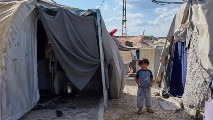
Effective identification and referral of vulnerable persons and addressing vulnerabilities throughout the asylum and migration procedures
The SRSG office will develop/compile transversally and support the implementation of practical guidance for the effective identification and referral of vulnerable persons and for addressing vulnerabilities throughout the asylum and migration procedures, including reception conditions.
The action “Strengthening the Human Rights Protection in the Context of Migration in Türkiye” aims at supporting the Turkish authorities in enhancing detention conditions and ensuring that appropriate procedural safeguards are in place in line with European and international standards in the context of migration. The action is implemented under the joint European Union and Council of Europe programme “Horizontal Facility for the Western Balkans and Türkiye” (Horizontal Facility III).
A new joint publication from the Council of Europe and the European Union Agency for Fundamental Rights (FRA) outlines the relevant human rights standards at Europe’s borders that apply to children.
The note on ‘Children in migration: Fundamental rights at European borders’ summarises the main safeguards of European law as they apply to migrant children at the external borders of the EU and of the Council of Europe. It covers the European Convention on Human Rights (ECHR) and EU law.
The new publication builds on the previous joint notes: Fundamental rights of refugees, asylum applicants and migrants at the European borders (March 2020); and European standards on legal remedies, complaints mechanisms and effective investigations at borders (July 2021).
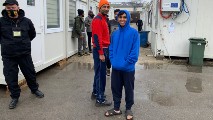
Human rights principles and guidelines on age assessment for children in migration
The Council of Europe Committee of Ministers has adopted a new Recommendation to member States on human rights principles and guidelines on age assessment in the context of migration and its Explanatory Memorandum. The Recommendation is the first international legal instrument setting human rights standards on age assessment in the context of migration.
Targeted action on safeguards in age assessment procedures, including training for practitioners in the field will also be developed.
The SRSG Office will implement and further disseminate tools developed under the Action Plan on migrant children, namely:
- Italian Presidency and Council of Europe joint Event on age assessment of unaccompanied migrant children (2022)
- Age assessment for children in migration - A guide for policy makers (2019)
- Report on consultations with unaccompanied children on the topic of age assessment (2019)
- Child friendly leaflet: “Your rights in the age assessment procedure”
- Child friendly video animation on age assessment for children in migration
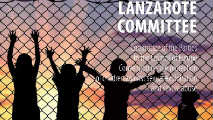
Protection of children against sexual exploitation and sexual abuse
In the context of the Action Plan on migrant children on 3 March 2017, the Lanzarote Committee adopted the Special report Protecting children affected by the refugee crisis from sexual exploitation and sexual abuse, as an outcome of an urgent monitoring round it launched to assess how Parties to the Lanzarote Convention were protecting children affected by the refugee crisis from sexual exploitation and sexual abuse.
As a follow-up to this report, the current Action Plan invites the Lanzarote Committee to promote good practices in the implementation of the recommendations of the special report, with a focus on aspects of missing children and preventive measures. To this end, the Lanzarote Committee already adopted, on March 2022, compliance reports concerning the 10 recommendations.
On 5 July 2022, a Checklist was prepared by the Lanzarote Committee’s secretariat on the basis of the Committee’s urgent monitoring findings on “Protecting children affected by the refugee crisis from sexual exploitation and sexual abuse”. This Checklist provides concrete guidance for migration practitioners and policy makers to swiftly identify appropriate measures to take and procedures to follow to prevent and protect children affected by refugee crisis from sexual abuse. It is a practical tool to support the authorities confronted by the arrival of children, in particular those fleeing Ukraine.
The Checlist was made available in Ukrainian, Hungarian, Polish, Slovak, Czech and Romanian (in addition to English and French). This Checklist provides concrete guidance for migration practitioners and policy makers to swiftly identify appropriate measures to take or procedures to follow to prevent and protect children affected by refugee crisis from sexual abuse. It is a practical tool to support the authorities confronted by the arrival of children, in particular those fleeing Ukraine.
The Council of Europe has launched a Handbook on how to better protect children against sexual exploitation and abuse in crisis and emergency situations

Implementing at national level the Court judgments concerning vulnerability of accompanied and non-accompanied minors and access to asylum
The department on execution of judgments will organise an exchange of good practices on implementing at national level the Court judgments concerning vulnerability of accompanied and non-accompanied minors and access to asylum.
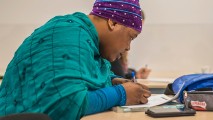
Rights of migrant and refugee women
On 20 May 2022, in Turin, Italy, the Committee of Ministers adopted a new recommendation to protect the rights of migrant, refugee and asylum-seeking women and girls providing measures to better respond to needs and challenges that they face.
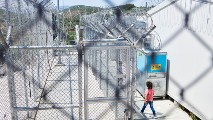
Alternatives to immigration detention
Support the practical implementation and piloting of alternatives to immigration detention including through co-operation programmes and awareness-raising.
> Administrative detention of migrants and asylym seekers - Guide for practitioners
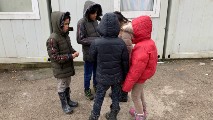
Effective guardianship for unaccompanied and separated migrant children
On 15 June 2022, the Committee of Ministers adopted an Explanatory Memorandum to the Recommendation CM/Rec(2019)11 of the Committee of Ministers to member States
on effective guardianship for unaccompanied and separated children in the context of migration.

Access to healthcare for vulnerable persons
The Steering Committee for Human Rights in the fields of Biomedicine and Health (CDBIO) is developing measures, promoting fair access to healthcare for vulnerable groups, including refugees and migrants, especially in the context of pandemics. They include a guide to health literacy, and standards on equitable access to medical treatment and equipment and to innovative treatments.
> Guide to health literacy - Contributing to trust buliding and equitable access to healthcare
> Pilot training on "Psycholgical Support to Refugees: Strengthening Professional Capacities", in Moldova and in Poland.
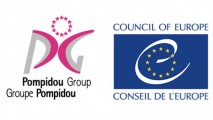
Guidance for professionals working in the field of addiction and drug prevention
The Pompidou Group has developed a handbook with guiding principles for professionals working in the field of addictions with refugees, migrants, and internally displaced persons:
Capacity building seminars are being organized by the Pompidou Group on “Responding to drug-related challenges for refugees, migrants and IDPs”. After a first edition in Athens on 8-11 October 2019, the second one took place in Palermo on 21-23 September 2021.
Ensuring access to law and justice
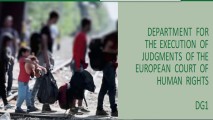
Thematic factsheet on migration and asylum
On 9 November 2021, the Council of Europe’s Department for the Execution of Judgments of the European Court of Human Rights published a new thematic factsheet on cases related to migration and asylum.
The factsheet summarises measures reported by 23 member states to protect and further strengthen migration- and asylum-related rights in response to 66 different judgments from the ECHR. It covers topics including access to territory and forced returns, the reception and protection of migrants and asylum seekers, protection from discrimination and hate crime, family life and family reunification and the detention of migrants and asylum seekers.
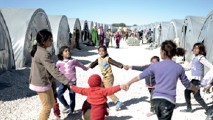
Guide on familybased care for unaccompanied and separated children
On 2 February 2022, the Council of Europe Committee of Ministers took note of the Guide on family-based care for unaccompanied and separated children developed by the Steering Committee for Human Rights.
The guide highlights key aspects for Council of Europe member States to consider when developing and implementing family-based care for unaccompanied and separated children in the context of migration.
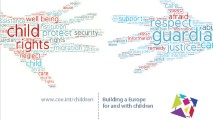
Thematic discussions on child-friendly approaches and procedures in migration
Hold thematic discussions on child-friendly approaches and procedures in migration within the Network of Focal Points on Migration and with other stakeholders (including in follow-up to Recommendation CM/Rec(2019)11 on effective guardianship).
The Network of Focal Points on Migration held its first thematic discussion on child-friendly approaches and procedures in migration during its 5th meeting on 9-10 June 2022.

Ensuring legal aid and representation, and access to information and justice
Identify and promote good practices in respect of legal aid and representation, and access to information and justice for vulnerable people in the context of asylum and migration, and develop related guidelines or policy recommendations.
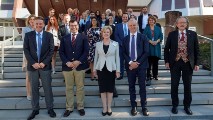
Addressing statelessness and the right to a nationality
An International Conference and technical meeting of experts, co-organised by CDCJ and the UNHCR, took place on 23-24 September 2021, on "Statelessness and the right to a nationality in Europe: progress, challenges and opportunities".
Priority follow-up actions to be undertaken in the period 2022-2025 to pursue the work on statelessness include the elaboration of guidance on child-sensitive procedures for stateless children and on the establishment of nationality, in particular for children.

Addressing data protection and digital identity
Develop specific guidance on data protection and digital identity in the context of migration, in conformity with the Convention for the Protection of Individuals with regard to Automatic Processing of Personal Data and its Additional Protocol.

Fighting the smuggling of migrants
Foster international co-operation and investigative strategies in fighting the smuggling of migrants.
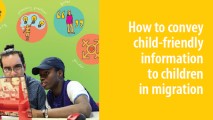
Child-friendly information for children in migration
Translate and promote the Council of Europe’s handbook on child-friendly information for children in migration.
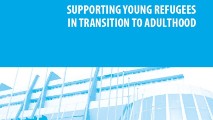
Supporting young refugees in their transition to adulthood
Promote the practical implementation of the CM/Rec(2019)4 on supporting young refugees in transition to adulthood.
(Czech, Dutch, French, German, Georgian, Greek, Hungarian, Italian, Polish, Portuguese, Romanian, Russian, Slovak, Spanish, Turkish and Ukrainian)
- “Practical guide on the implementation of the Committee of Ministers’ Recommendation (CM/Rec (2019)4) on supporting young refugees in transition to adulthood”, launched on 18 April 2023 during the International Launching Event on “Turning 18 with Confidence: Supporting Migrant and Refugee Children in transition to Adulthood”.
- Multilateral project “Building Futures, Sharing Good Practices: Migrant Children’s Transition to Adulthood – UACFutures” – developed by the Co-operation Programmes Division – Directorate General Human Rights and Rule of Law (DGI)
Fostering democratic participation and enhancing inclusion
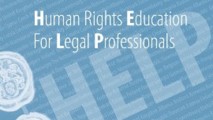
Human rights training for legal professionals (HELP)
Continue and support the national implementation of HELP courses on Asylum and Human Rights, Refugee and migrant children, Alternatives to Immigration Detention, Combating Trafficking in Human Beings, Fight Against Racism, Xenophobia, Homophobia and Transphobia, Radicalisation Prevention, LGBTI Persons in the Asylum Procedure and Transition of MIgrant and Refugee Children to Adulthood . This will contribute to enhance the knowledge of legal professionals on key human rights topics and to a better protection of human rights on a national level.
The Asylum/Migration HELP e-Desks facilitate access of legal professionals to information and training about effective handling of cases at national level related to refugees and displaced persons, with an immediate focus on people from Ukraine.
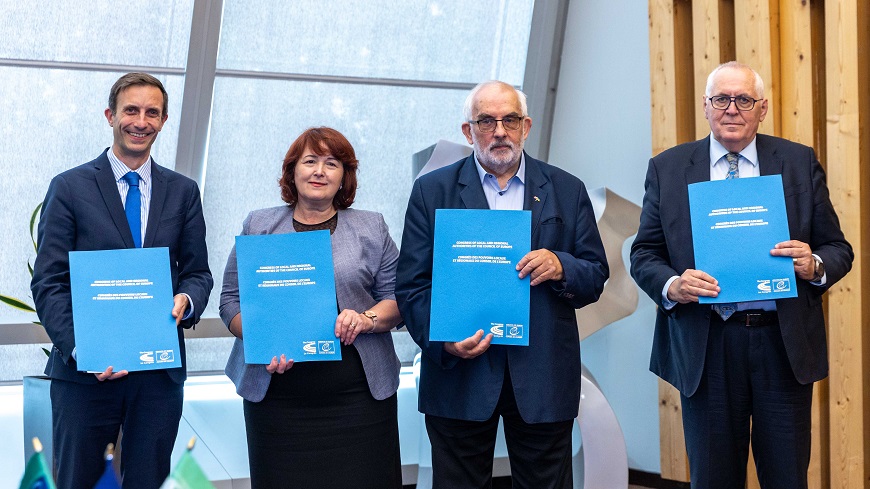
Strengthening resilience of local and regional authorities facing migration challenges
The Congress of Local and Regional Authorities of the Council of Europe is committed to the full realisation of human rights at local and regional levels as one of its thematic priorities, including for refugees, asylum seekers, migrants and internally displaced persons. Local and regional authorities are key actors in migration management as they are at the forefront in the provision of services, including healthcare, education and integration, striving to raise citizens’ awareness to create cohesive and inclusive communities.
The recent Report on the Reception of women and children refugees in Europe's cities and regions, published in October 2022, provides guidance to relevant authorities in developing gender-sensitive and child-friendly reception policies. This includes education and housing, as well as the protection of women and children refugees from violence by developing screening mechanisms to identify victims
The project “Strengthening resilience in local and regional authorities facing migration challenges” supports local and regional authorities and their national associations in Poland, the Republic of Moldova, and Romania in upholding human rights of migrants, especially those of women and children, thereby contributing to building strong local democracy and inclusive, resilient and sustainable societies.
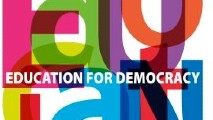
Linguistic integration of migrants and refugees
Promote the use of dedicated resources and capacity-building activities to offer lingustic support to migrants and refugees.
- The Education Department's toolkit for language support for adult refugees is currently available in 8 languages and offers guidance and easy to-use teaching materials for educators and volunteers.
- The Reference guide on Literacy and Second Language Learning for the Linguistic Integration of Adult Migrants (LASLLIAM);
- Language support for children and adults arriving from Ukraine ;
- Guide for the development and implementation of curricula for plurilingual and intercultural education;
- Handbook for curriculum development and teacher training:
Develop a practical guide to support eductors in schools with refugee children to ensure their inclusion in the education system and society.
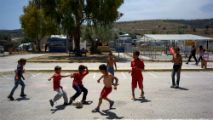
Integration of refugees and migrants through sports
Develop co-operation with the Union of European Football Associations (UEFA) on supporting sports integration of refugees and migrants based on the existing platform of sports projects.
> Platform of integration projects through sport for migrants
Side event to the 17th Council of Europe Conference of Ministers responsible for Sport - Integrating migrants and refugees through sport: Assessing current best practice, identifying vulnerabilities and finding ways to move forwards was held on 27 October 2022.
> 17th Conference of Ministers responsible for sport
Support and participation of the SRSG as a jury member of the Football and Refugee Grant Scheme, which provides funding to refugee-related projects organised and operated by European football associations.
> World Refugee Day 2022: European football's widespread support
> World Refugee Day 2023: UEFA and the football community offer hope away from home
EPAS Diversity Conference on the inclusion of child migrants and refugees in and through sport was organised on 29 November 2023 under the framework of the Liechtenstein Presidency of the Council of Europe and in co-operation with the office of the SRSG (more information) .

Multilevel policy framework for intercultural integration
On 6 April 2022,the Council of Europe Committee of Ministers adopted by consensus Recommendation CM/Rec(2022)10 on multilevel policies and governance for intercultural integration. This is the second international standard in this field following the adoption back in 2015 of CM/Rec(2015)1 on intercultural integration, and the first ever co-drafted by representatives of local and national authorities within the framework of the Working Group on Intercultural Integration (GT-ADI-INT).
Set up in 2020 under the Steering Committee on Anti-discrimination, Diversity and Inclusion, the GT-ADI-INT fulfilled its mandate by adapting the Intercultural Cities model to the regional and national level by: 1) reviewing the implementation of CM/Rec(2015)1, in this context, mapping strengths and remaining needs; 2) elaborating a Model Framework for an intercultural integration strategy at the national level, which was adopted by consensus in June 2021; 3) and suggesting ways to promote multilevel governance and policies for intercultural integration.
- Supporting the implementation of this recommendation, the “Capacity building programme and tools for migrant integration” further takes into consideration the tools, practices and achievements of the Intercultural Cities (ICC) Programme, as well as a number of pilot and promising initiatives and projects carried out at national and regional levels. Tailor-made projects to support the implementation of the integration policies were launched in Cyprus in June 2021, Finland and Italy in September 2022 through a joint programme of the European Commission’s Directorate General for Structural Reform Support (DG Reform) and the Council of Europe. The “Manual for the design of a training course on intercultural competence” (2022) to support the design of training courses on intercultural competence targeting staff and officials at all levels of government, thus helping member states to efficiently implement the Council of Europe intercultural integration model.
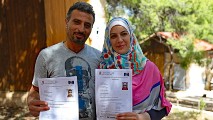
Access to education and employement
Promote the integration of refugees by enhancing their access to education and employement, by facilitating the recognition of their qualifications through the European Qualifications Passport for Refugees and by fostering linguistic integration through education.
- European Qualifications Passport for Refugee
- Supporting an efficient national mechanism of recognition of refugees’ qualifications in Italy within the framework of the 2022 Council of Europe/European Union Technical Support Instrument (TSI).
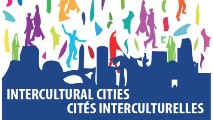
Alternative narratives and positive intercultural communication
The Intercultural Cities Programme issued a policy brief based on research about alternative narratives being developed by cities, big and small, in relation to migration and integration.
The online training programme on alternative narratives and inclusive communication for public authorities was developed in 2021 and is open to the members of the ICC network.
Enhancing co-operation between migration and asylum authorities in Council of Europe member states
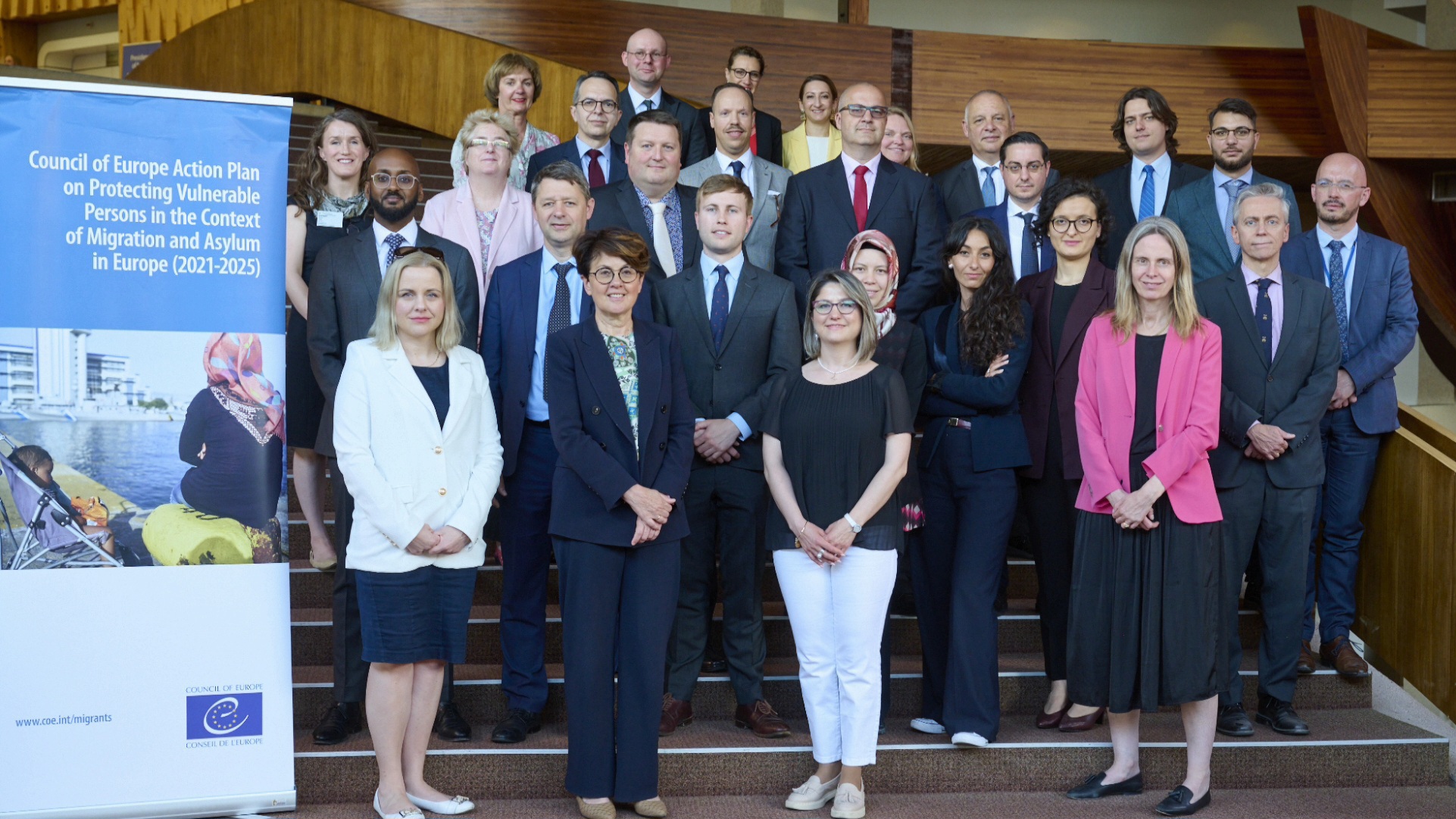
Promoting inter-agency co-operation and fostering peer-to-peer exchanges
The Network of Focal Points on Migration is composed of members from relevant ministries in the member states dealing with migration issues at national level.
- It exchanges good practices and enhance co-operation between the different stakeholders in the member states and the Council of Europe, including on the implementation at national level the Court judgments concerning vulnerability of accompanied and non-accompanied minors and access to asylum.
- It held its first thematic discussion on child-friendly approaches and procedures in migration during its 5th meeting on 9-10 June 2022
- It addresses the situation of people fleeing Ukraine, including the need to protect vulnerable persons against abuse, exploitation and trafficking, and in particular unaccompanied children.


